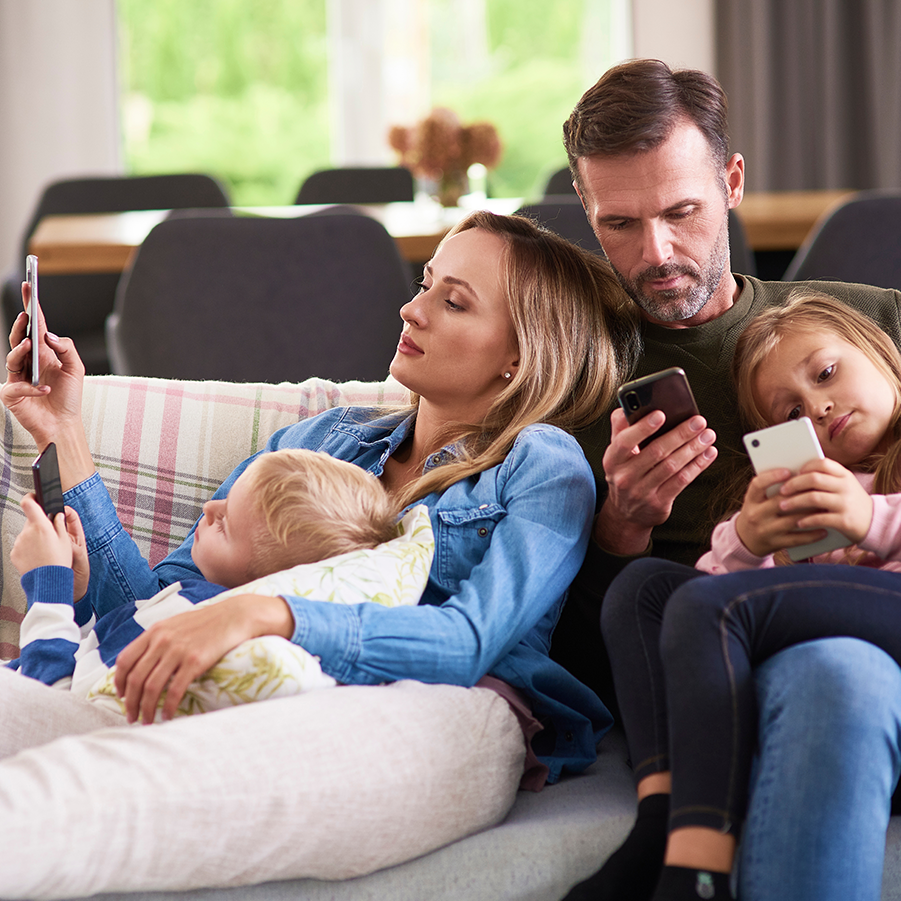Friend or Foe? Keeping It Real in an Era of Digital Dependence
Keeping It Real in an Era of Digital Dependence.
The 1970 hit song “Close To You” by The Carpenters wasn’t about smartphones – they weren’t invented yet – but if “Close to You” was released in 2023, it would absolutely define the world’s relationship with its favorite device.
A 2023 cell phone usage survey reveals that 60 percent of Americans sleep with their phone at night, while 89 percent check their phone within 10 minutes of waking up and 144 times throughout the day.
There seem to be few boundaries regarding smartphone use, which explains why 75 percent of Americans admit to using their phone while on the toilet, 46 percent look at their phone while on a date, and 10 percent check their phone during sex.
There’s even a word to define the anxiety of being without your phone: nomophobia.
Clearly, we are obsessed with the technology that brings the world into the palm of our hands.
“The smartphone is really a portable Internet. Digital is so integrated into our lives, it is part of almost everything we do,” says Nadja Streiter, LMSW, a psychotherapist who specializes in treating people who struggle with problematic technology use and related mental health concerns.
Digital dependence
Although 57 percent of Americans surveyed define themselves as “addicted” to their smartphones, the mental health community has yet to label this condition.
The Diagnostic and Statistical Manual of Mental Disorders (DSM) published by the American Psychiatric Association does not officially recognize “smartphone addiction” or “Internet addiction,” but “Internet gaming disorder” is acknowledged.
There’s no denying that the digital world is a major part of our lives.
“Digital technology is integral to so many aspects of daily life,” says Streiter, whose practice Eyes Up Wellness is located in Westport, Connecticut.
The digital connection we have today has resulted in a “never not working” atmosphere. Many people who are connected digitally at work all day come home and get online to interact socially or go online and work more.
Being digitally connected may be “normal,” but that doesn’t mean it’s healthy.
“There are lots of benefits to it, but overuse and overexposure can lead to problems with physical and mental health,” notes Streiter. “The negative impact of increased use is intensifying. At the same time, we’ve been required to engage digitally more and more.”
Studies indicate a strong correlation between digital media use and depression and anxiety.
Streiter explains that people suffering from depression tend to interact more digitally when they don’t get pleasure from normal social interaction. Yet what they see online can contribute to greater depression.
“It’s the same with anxiety,” she says. “The more you engage and are connected digitally, the more anxious you become when you can’t interact digitally. It’s a vicious circle.”

Is there a problem?
What determines a “healthy” amount of digital connection varies by individual.
“You can’t just look at the quantity of time and type of use of devices. The problem starts to occur when it takes away from other important aspects of well-being, including relationships, work, sleep, and exercise,” says Streiter.
Major signs that your digital connection has become unhealthy include:
• Loved ones say you’re always on the phone/online.
• You get more pleasure out of virtual activities than anything in the physical world.
Streiter says it’s important to identify the difference between “virtual” and “physical” because today the virtual world is the real world. As with any addiction, change can only happen if someone admits they have a problem.
In addition to seeking professional help, take the following steps if you realize you need to control your digital usage:
• Review screen time usage to see where you can cut back.
• Limit online activities to a specific number of times per day or a certain time of day.
• Have a one-device rule (don’t be on your phone and computer at same time).
• Turn off notifications.
• Create “down time” by disabling all your phone apps for a period of time.
• Use texting to complement real conversation, not replace it.
• Set a timer when on the Internet.
• Turn off your phone at certain times of the day.
• Remove social media apps from your phone so you have to use your computer to check in.
• Don’t sleep with your phone/device.
• Charge your device in a room other than your bedroom.
• Minimize phone use when you’re with people (dining, visiting, etc.).

